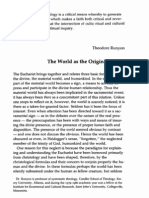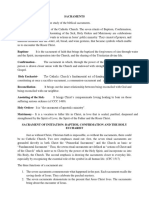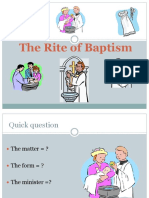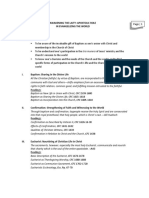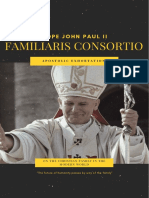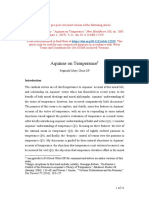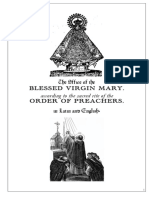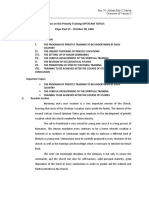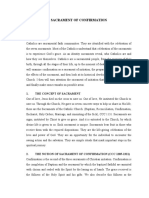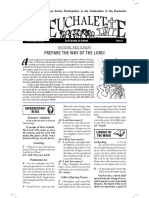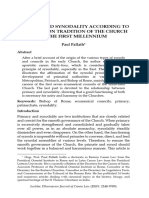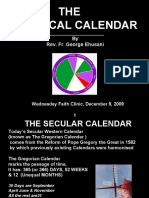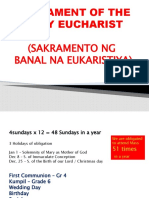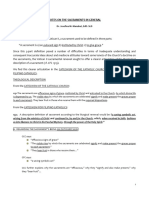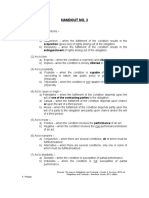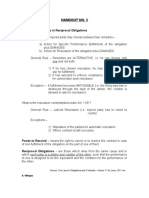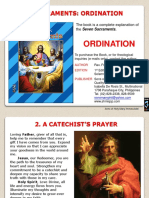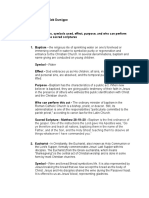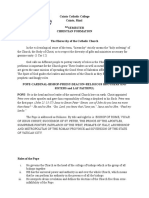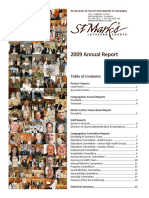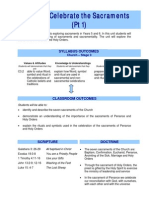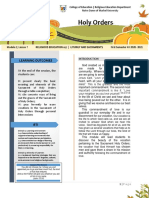0% found this document useful (0 votes)
364 views8 pagesSACRAMENTS
The document discusses the Catholic Church's understanding and definition of sacraments. It provides both the traditional and updated definitions from the Catechism of the Catholic Church and the Catechism for Filipino Catholics. The key points of a sacrament - as an outward sign instituted by Christ to give grace - are explained in more depth, addressing their origin and relationship to Christ, their effects and fruits, and the role of the Church in the sacraments.
Uploaded by
Tommy VillanuevaCopyright
© © All Rights Reserved
We take content rights seriously. If you suspect this is your content, claim it here.
Available Formats
Download as DOCX, PDF, TXT or read online on Scribd
0% found this document useful (0 votes)
364 views8 pagesSACRAMENTS
The document discusses the Catholic Church's understanding and definition of sacraments. It provides both the traditional and updated definitions from the Catechism of the Catholic Church and the Catechism for Filipino Catholics. The key points of a sacrament - as an outward sign instituted by Christ to give grace - are explained in more depth, addressing their origin and relationship to Christ, their effects and fruits, and the role of the Church in the sacraments.
Uploaded by
Tommy VillanuevaCopyright
© © All Rights Reserved
We take content rights seriously. If you suspect this is your content, claim it here.
Available Formats
Download as DOCX, PDF, TXT or read online on Scribd
/ 8






